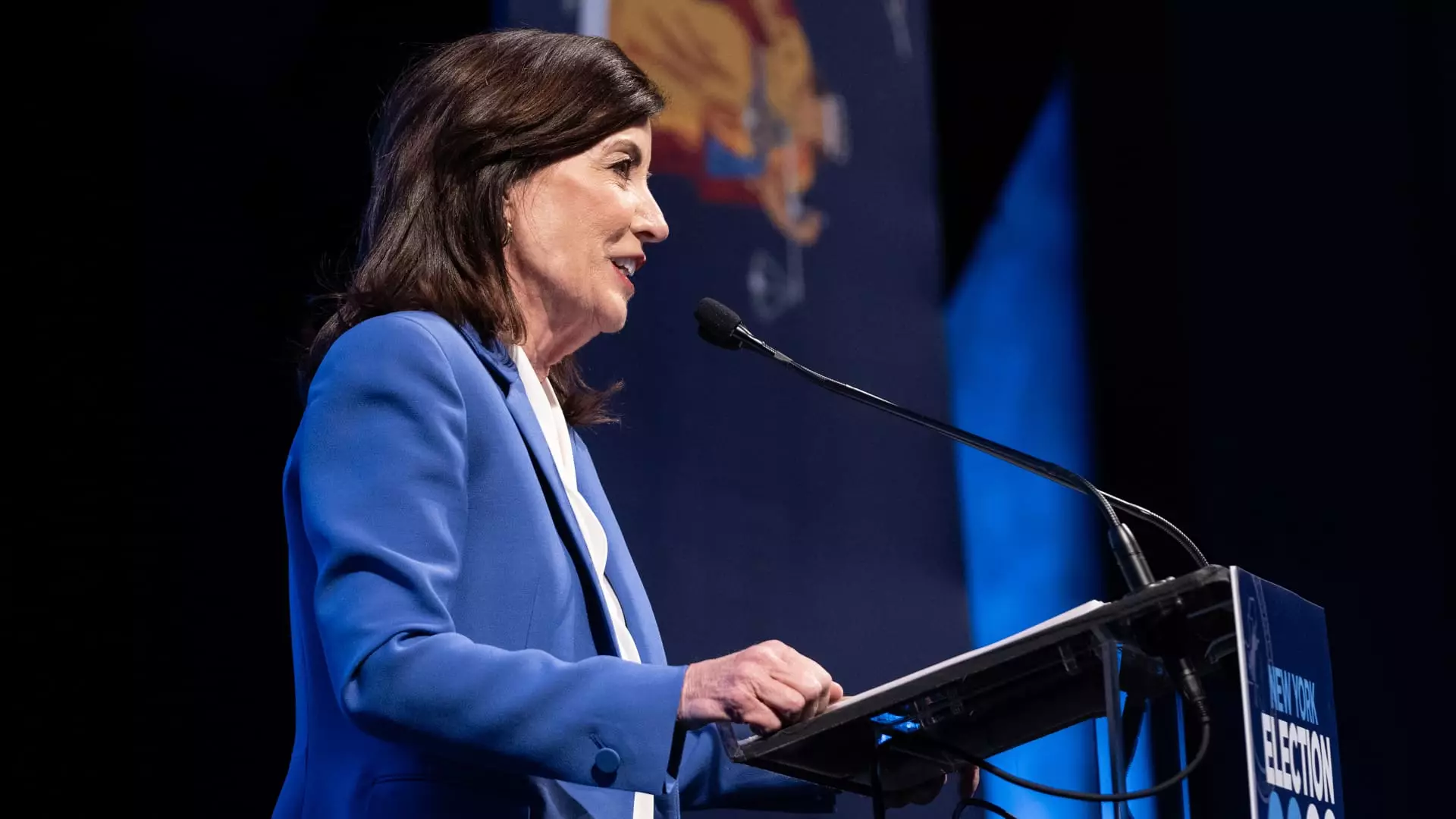New York has taken the lead in launching a new program that offers homeowners up to $14,000 in total rebates for energy-efficiency upgrades to their property. This initiative is part of the federal Inflation Reduction Act, which is the largest piece of climate legislation in U.S. history, signed by President Joe Biden in 2022. The aim of the program is to assist consumers in reducing or fully offsetting the cost of upgrades that make their homes more energy-efficient. By doing so, homeowners can decrease their carbon emissions and lower their future energy bills.
The federal law set aside $8.8 billion for consumers through two Home Energy Rebates programs. These programs provide financial incentives to encourage homeowners to invest in energy-efficient upgrades such as air sealing, insulation, electric heat pumps, and electric stoves. The ultimate goal is to promote sustainability and reduce energy consumption across the country.
New York initiated part of its rebate program on May 30, making federal funds of up to $14,000 available to low-income households. When combined with the EmPower+ state program, which offers up to $10,000 per low-income household, consumers can access up to $24,000 in total rebates. This significant financial assistance can make a substantial impact on the ability of homeowners to afford energy-efficiency upgrades.
The New York State Energy Research and Development Authority is leading the way in the implementation of these rebate programs. The Energy Department has disclosed that seventeen states have already applied for funding as of June 14. New York was the first state to distribute funds to consumers, setting an example for others to follow.
Several more states are expected to make these rebates available by September, according to the Energy Department. California and Hawaii have already had their applications approved, indicating that progress is being made across the country. This initiative is seen as a milestone in the efforts to promote energy efficiency and combat climate change.
Program Overview
The Inflation Reduction Act established two Home Energy Rebates programs: the Home Efficiency Rebates program and the Home Electrification and Appliance Rebates (HEAR) program. New York’s launch in May was a part of the HEAR program, with plans to apply for the second phase at a later date. The HEAR program is specifically designed for low and middle-income homeowners, providing financial assistance for energy-efficient upgrades.
Low-income households are eligible to receive up to $24,000 in combined federal and state funds to cover the costs of improvements like air sealing, insulation, electrical upgrades, and heat pump installations. These rebates are facilitated through approved contractors who provide quotes with the rebates applied. The goal is to make energy-efficient upgrades more accessible and affordable for homeowners.
Future Expansion
New York is planning to launch the second phase of the HEAR program in the fourth quarter of 2024. This expansion would make the rebates available to moderate-income residents and multifamily buildings. Additionally, electric appliances like ENERGY STAR-rated electric stoves and heat pump clothes dryers would be eligible for rebates at the point of sale. These changes aim to make the program more inclusive and encourage more homeowners to participate in energy-efficient upgrades.
In contrast, the Home Efficiency Rebates program is technology-neutral, with rebates linked to overall energy savings achieved through efficiency upgrades. The more energy saved, the higher the rebates, with a maximum of $8,000 available to qualifying households. This approach incentivizes homeowners to make substantial improvements that significantly reduce their energy consumption.
The new federal rebate program for energy-efficiency upgrades is a significant step towards promoting sustainability and combating climate change. By providing financial incentives to homeowners, the program encourages investment in energy-efficient upgrades that can have a long-term impact on reducing carbon emissions and energy consumption. With New York leading the way, other states are expected to follow suit and implement similar programs to support homeowners in making their homes more energy-efficient.

